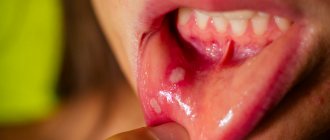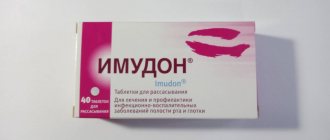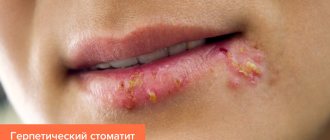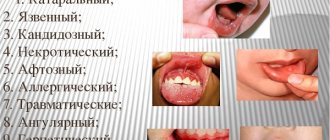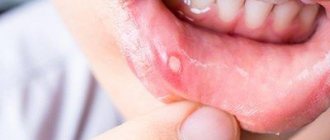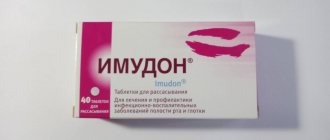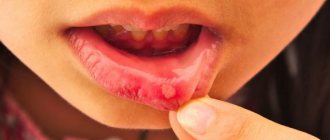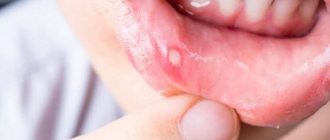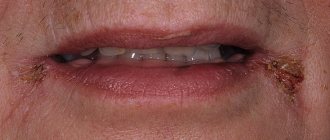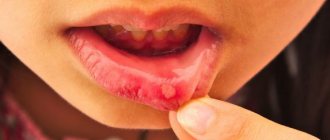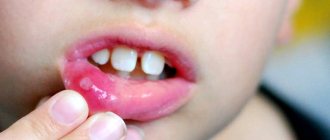Stomatitis is one of the most common dental diseases, which is expressed in damage to the oral mucosa. It occurs in both adults and children and requires urgent treatment. Treatment of stomatitis in children is usually required for children with weakened immune systems. There are many ways for infection to enter a small organism.
Urgently contact the dental department of the CELT clinic if your child exhibits the following symptoms:
- increased temperature;
- no appetite;
- a white coating appears on the gums;
- ulcers appeared in the mouth;
- lymph nodes hurt.
We have everything to carry out effective, prompt and painless treatment of stomatitis in children of any age. Bring to us children under one year old, 2-3 years old and older - and we will select effective treatment for him in each individual case.
Consultation with a pediatric dentist (pedodontist) - RUB 1,000.
Apexification with the application of a temporary filling (1 channel) - 1,500 rubles.
Filling the root canals of baby teeth - 4,000 rubles.
Installation of insulating gasket "VITRIBOND" - 800 rubles.
At CELT you can get advice from a dental specialist.
- Cost of consultation with a pediatric dentist (pedodontist) – 1,000
Make an appointment
Causes and types of stomatitis
Treatment of stomatitis in young children is carried out by treating the affected areas with special medicinal compounds, the choice of which is carried out in accordance with the etiology of the disease. Treatment is prescribed by the pediatric dentist after examining the small patient and identifying the cause and nature of the disease.
The disease can develop due to bacteria entering the mouth through dirty hands or cutlery, as well as due to a weakened immune system. The spread of pathogenic bacteria in a child’s body occurs at extreme speed due to the vulnerable mucous membrane. An additional factor is weak salivation, which causes a lack of hydration. Excessive dryness leads to cracks into which bacteria penetrate and cause disease.
Stomatitis often develops while taking pharmacological drugs. To avoid progression of the disease, you need to stop taking antibiotics. During the consultation, the decisive factor is the observations of the parents. They are the ones who can explain the cause of the disease (injury to the mucous membrane, allergies, taking antibiotics).
Possible side effects
During the period of use of Lugol, side effects :
- irritation of mucous membranes or skin;
- allergic reactions: swelling, redness, burning, itching, hyperemia;
- tachycardia;
- sleep disturbance;
- increased sweating;
- appearance of nervousness;
- diarrhea;
- hives;
- acne;
- lacrimation;
- rhinitis;
- increased saliva production;
- overactivity of the thyroid gland, which leads to thyrotoxicosis;
- dysfunction of the vascular system;
- enlargement of the submandibular lymph nodes.
Aphthous stomatitis
Aphthous stomatitis is characterized by the appearance of a large number of aphthous stomatitis on the oral mucosa. These are round or oval ulcers covered with plaque. The causes of this disease are as follows:
- past infectious diseases: influenza, measles;
- lack of vitamin B12 and microelements in the body;
- oral injuries;
- gastrointestinal diseases.
For the most effective treatment of aphthous stomatitis in children, our specialists pay special attention to identifying the cause that caused it. Treatment of acute stomatitis in children is simply necessary, since the disease itself is very difficult. Its characteristic feature is unpleasant pain symptoms, which intensify when the ulcers are touched with hot or sweet food.
Treatment of purulent stomatitis in children requires an integrated approach. It consists not only in local treatment of ulcers with medications, but also in proper diet, frequent drinking and regular oral hygiene.
Acute pharyngitis
Acute pharyngitis can occur independently, and can also be accompanied by acute inflammation affecting the upper respiratory tract: rhinitis or inflammation of the mucous membranes of the nasopharynx.
Depending on the cause of development, acute pharyngitis occurs:
- Viral – most often caused by rhinovirus;
- Bacterial – caused by streptococci, staphylococci and pneumococci;
- Fungal – source of the inflammatory process – Candida;
- Traumatic - caused by damage to the pharynx and larynx: the throat was scratched by a sharp bone or burned by boiling water, severe stress on the ligaments;
- Allergic – occurs when inhaling allergens or irritants, such as tobacco, exhaust fumes or dusty air.
Viral stomatitis
The name of viral stomatitis speaks for itself: it is caused by influenza, herpes, measles and chickenpox viruses.
Symptoms of the disease at an early stage include weakness, lethargy, a slight increase in body temperature, and pain in the mouth. When examining the oral cavity, you can see the appearance of small red ulcers on the mucous membrane and tongue. Treatment of viral stomatitis in children depends on the age of the child, the state of his immunity and the stage of the disease. As a rule, our experts recommend treating the oral mucosa with anti-inflammatory drugs and decoctions, and lubricating the affected areas with vitamin A.
Operating principle
The effectiveness of the product is explained by the successful combination of ingredients present in the composition. Once on the skin and mucous membranes, it easily penetrates all their layers and gets to work.
- Iodine. The component has a primary therapeutic effect and is introduced in a high-molecular form.
It has a strong bactericidal effect against all gram-positive and negative bacteria.It improves tissue nutrition, normalizes the metabolic process, relieves pain, relieves swelling and inflammation, stimulates the regeneration process in cells, and protects healthy areas of the epithelium from infection.
- Potassium iodide. It is a strong catalyst in the preparation, which enhances the effectiveness of iodine. It also exhibits an independent therapeutic effect, showing antiseptic, antifungal and local sedative effects.
- Glycerol. Softens tissues, neutralizes the drying effect of iodine, reduces the likelihood of irritation of tissues and mucous membranes, which has a positive effect on recovery.
Effective drugs for the treatment of aphthous stomatitis in adults and precautions. Let's talk about the symptoms of oral cancer here.
At this address https://dr-zubov.ru/lechenie/bolezni-polosti-rta/gel-kamistad-instrukciya-po-primeneniyu.html we offer instructions for using the drug Kamistad.
Candidal stomatitis
Candidal stomatitis is known as thrush. It can appear in children even in infancy, and it is caused by saprophytic fungi, which become pathogenic when immunity decreases. With this type of stomatitis, white spots appear in the child’s mouth. In addition, there may be an occasional increase in temperature and the appearance of photophobia. Infection of a child can occur through contaminated dishes, toys or pacifiers.
Treatment of candidal stomatitis involves undergoing daily procedures in the dental office, rinsing the mouth with alkaline solutions, and taking vitamins.
Treatment of stomatitis in a child cannot be delayed, otherwise this may lead to relapse of the disease. CELT pediatric dentists recommend regular preventive examinations that will help prevent the development of serious dental diseases, including stomatitis!
special instructions
Treatment of stomatitis is carried out comprehensively. Before treating the oral cavity with Lugol's solution, it is necessary to clean the mucous membrane of food debris, lipid and purulent secretions. To do this, you should rinse your mouth with medicinal herbs or antiseptic solutions.
Herbal infusions have a beneficial effect on the affected mucous membrane: chamomile, sage, calendula, oak bark. Herbal infusions soothe irritated mucous membranes, relieve pain, have an antiseptic effect, rinse out the smallest pieces of food from the mouth, cleanse ulcers from accumulated pus, and soften the resulting crusts.
You can rinse your mouth with a number of other solutions: soda, potassium permanganate, furatsilin.
Important! You should not rinse your mouth with chlorhexidine before treating the oral cavity with iodine-containing preparations, in particular Lugol. These two drugs do not mix.
The simultaneous use of Lugol with essential oils and hydrogen peroxide is prohibited due to the incompatibility of these substances.
Treatment of stomatitis in a child
The main rule is to immediately contact a specialist and not use any gels or ointments based on recommendations from the Internet. Each type of pathology is treated differently, so the dentist conducts a comprehensive examination. Additional consultation with an otolaryngologist or dermatologist is often required.
In complex therapy, proper oral care is prescribed and professional toothpaste is selected. Solutions and gels are required. If the form is viral, then antibiotics are used, and if it is allergic, then antihistamines are used. If necessary, medications are used to reduce the temperature (if there is fever and chills).
Reviews
Numerous reviews confirm the effectiveness of this drug. Most users claim that a positive result is observed after a single use.
We invite you to share your opinion about Lugol in the comments to this article.
If you find an error, please select a piece of text and press Ctrl+Enter.
Tags treatment treatment of stomatitis Lugol stomatitis
Did you like the article? stay tuned
Previous article
Does garlic help with toothache?
Next article
Recommendations for using a caries marker
Prevention of stomatitis in children
- Be sure to clean all cutlery, bottle and pacifier. Boil periodically.
- You need to brush your baby teeth 2 times a day. Cleaning should be carried out by parents up to 6 years of age, and then show all the movements to the child and teach him proper oral hygiene.
- After eating food, you need to rinse your mouth with boiled or filtered water that is well removed from bacteria.
- Wash your hands and all toys regularly. Children often put their fingers or toys in their mouths - wean them off this (many pathogenic bacteria get into the mucous membranes).
- Visit your dentist 2 times a year for a visual examination and disease prevention.
- Do not give your child too hot or cold food. Avoid hard, spicy, sour and very salty foods. This will lead to injury to the oral mucosa.
- Avoid foods that cause allergies.
- Provide a healthy diet rich in minerals and vitamins. It is advisable to walk outdoors more often. All this helps strengthen the immune system and protect against stomatitis.
Diagnosis of pharyngitis
Detection of all types of pharyngitis begins with a visual examination of the larynx using a special device and taking an anamnesis. A throat swab is also taken for examination to test for diphtheria.
Other types of diagnostics:
- Cultural examination - inoculation of taken materials on a nutrient medium.
- Rapid diagnosis - identification of streptococcal antigen in throat swabs.
- Immunoserological diagnosis - the method is used in case of streptococcal infection.
Laboratory research:
- Complete blood count – exclusion of blood diseases, infectious mononucleosis;
- A general urine test helps rule out kidney disease (glomerulonephritis).
Depending on the symptoms of the disease, as well as the condition of the larynx, the presence or absence of cough, fever, plaque on the tonsils and soreness and increased size of the lymph nodes, additional consultations with other specialists may be necessary: an endocrinologist, a cardiologist, an allergist.
How to care for a child after stomatitis appears?
Without the help of parents, a child will never get rid of the disease, because strict discipline is needed. You must follow all the requirements of the pediatric dentist and pay special attention to diet and pain medications.
Prefer soft food with a temperature of no more than 28o C. It is important that it has a balanced composition of carbohydrates, fats, proteins, vitamins, and minerals. Allergens, as well as spicy, sweet, sour and very salty foods, must be excluded from the diet. It is advisable to exclude citrus fruits due to their high acid content. After eating, rinse your mouth with filtered or boiled water.
Treatment includes the use of painkillers. The child will feel severe pain at first, which will interfere with sleep. Therefore, you need to regularly rinse your mouth not only with clean water, but also with medicinal balms. The affected area should be smeared with medicinal gel. All recommendations for treatment and pain relief will be given to you by your pediatric dentist during your consultation.
Make an appointment through the application or by calling +7 +7 We work every day:
- Monday—Friday: 8.00—20.00
- Saturday: 8.00–18.00
- Sunday is a day off
The nearest metro and MCC stations to the clinic:
- Highway of Enthusiasts or Perovo
- Partisan
- Enthusiast Highway
Driving directions
Sore throat and pharyngitis: what is the difference?
The general condition of the patient with acute tonsillitis or tonsillitis can be confused with the symptoms of pharyngitis. If the disease is diagnosed incorrectly, then treatment of pharyngitis in adults will not have any effect. And the acute form of the pathology can develop into a chronic one.
Unfortunately, many patients self-medicate and start using medications without a doctor’s specific prescription. This is extremely contraindicated! It is better to take care of your health in time and seek help from an experienced otolaryngologist.
It is important to remember that during pharyngitis, the larynx becomes inflamed, and during tonsillitis, the tonsils become inflamed. During a sore throat, it is always painful to swallow, and the pain intensifies even more when eating food. With pharyngitis, the opposite happens - while eating warm food or warm drinks, the sore throat decreases.
During the development of a sore throat, there is no cough or sore throat, only a sore throat and sometimes the formation of a white coating. With pharyngitis, there is a sore throat, as well as noise, pain, or congestion in the ears. The difficulty in distinguishing between these two diseases is further complicated by the fact that one patient can simultaneously develop both pathologies, since they are caused by the same pathogen.
